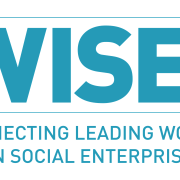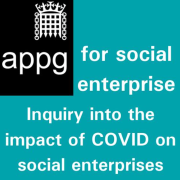How the Social Enterprise Mark can benefit Higher Education Institutions
By Cara Aitchison, Vice Chancellor of University of St Mark & St John
Our students and graduates are increasingly reporting that they seek employment and lifestyles that enable them to contribute to the social, cultural and environmental well-being of their communities, society and the world around them, rather than simply thinking of their degree as a route to a highly paid career. This presents an opportunity for university leaders who chose to put ethics, civic engagement, social and environmental justice and sustainable economic development at the heart of their strategic plans and student experience.
By being accredited with the Social Enterprise Mark, universities can better demonstrate their sustainable and ethical business credentials to the next generation of applicants. We can show our students how we apply in practice the values and knowledge that we teach and how they too can be part of a social enterprise culture.
We are all under increasing pressure to expand and diversify our income streams, and to demonstrate our positive benefit to the students, communities and stakeholders we serve. The social enterprise business model provides opportunities for HEIs to transform the way we are perceived by stakeholders and can enable us to position ourselves as ‘businesses’ driven by social objectives.
 The University of St Mark & St John was awarded the Social Enterprise Mark in 2015, signalling our commitment to social enterprise and demonstrating the social value that we create as a university.
The University of St Mark & St John was awarded the Social Enterprise Mark in 2015, signalling our commitment to social enterprise and demonstrating the social value that we create as a university.
As the number one university in the UK for social mobility, we are proud to be recognised for our commitment to helping local communities and the broader south west peninsula to thrive and prosper. The Social Enterprise Mark helps us to communicate this commitment to students, potential applicants, partners and the wider business community and sets us apart as a values-based, socially conscious university.
As we enter a new era in Higher Education, where the Teaching Excellence Framework and other policy developments emphasise graduate earnings, we need ways to demonstrate our parallel commitment to social enterprise principles, and the Social Enterprise Mark offers one such mechanism.
There is currently a potential discount for GuildHE members that commit to apply for the Social Enterprise Mark before the end of August 2016, and I would recommend doing so. My colleague, Professor Brendon Noble, the Pro Vice-Chancellor for Research, Innovation and International who took forward our application for the Social Enterprise Mark, can also talk to you about our experience and the benefits.
You can get in touch with Social Enterprise Mark CIC with any questions, or to express your interest in applying – 0345 504 6536 or via email.
Originally posted on the GuildHE blog on 22nd April 2016










